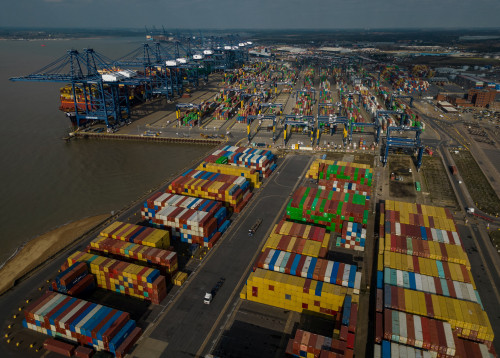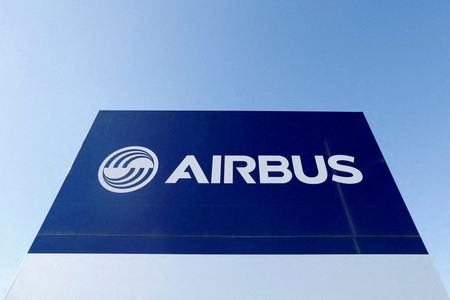 1
1 1
1

By Tim Hepher
FARNBOROUGH, England (Reuters) – Europe’s Airbus, locked in a dispute with Dassault Aviation over the next stage of a Franco-German-Spanish fighter project, is thinking about other options but is focused on making the project work as planned, its chief executive said on Wednesday.
Airbus is a key partner for Germany in the plan to build a manned and unmanned Future Combat Air System (FCAS) to replace Rafale and Eurofighter jets in cooperation with Dassault Aviation, which is working on behalf of France.
The companies have completed 18-months of initial work known as phase 1A, but are split over workshare for the next stage, a flying demonstrator known as phase 1B.
Dassault, maker of France’s Rafale, has threatened to walk away from FCAS and implement an unspecified plan B if there is no agreement with Airbus, which is part of Eurofighter.
Asked at the Farnborough Airshow whether Airbus had its own plan B in case of a breakdown, Chief Executive Guillaume Faury stressed the importance of sticking to current proposals.
“There’s a plan A and plan A is FCAS…There are other options, we think of other options but we are working for plan A,” he told Reuters in an interview.
“We want to make it happen. I don’t want to be discussing plan B. That will undermine the likelihood to get to plan A, because plan A is plan A and remains plan A,” he said.
Like Britain’s rival Tempest project, FCAS would involve a warplane flanked by swarming drones using sensors and stealth.
Announcing half-year results on Wednesday, Dassault stressed it had been chosen as lead contractor for the core warplane or New Generation Fighter (NGF), with Airbus appointed “main partner”.
That mirrors the lead taken by Airbus in the four-nation Eurodrone project, where Dassault is a sub-contractor, it said.
ACCEPTANCE
“The prime contractor/main partner relationship is still to be clarified,” Dassault said. “Dassault Aviation is seeking a clear statement of acceptance of its role as prime contractor by Airbus Defence and Space for the NGF (in symmetry with Eurodrone).”
Dassault Chief Executive Eric Trappier has voiced impatience about the impasse and warned that the plan to enter service in 2040 is already slipping towards 2050.
Asked how close the two sides were to an agreement, Airbus’ Faury said, “closer, day by day”. Asked when an agreement could be reached, he said, “this year”.
Faury was speaking at the Farnborough Airshow where Britain said on Monday it was collaborating with Japan and Italy on Tempest, with plans for a demonstrator flight in five years.
“I think the fact that Team Tempest brings in Japan reinforces, if that were necessary, the need for cooperation at a large scale on those important problems,” Faury said.
(Reporting by Tim Hepher; editing by Richard Pullin)